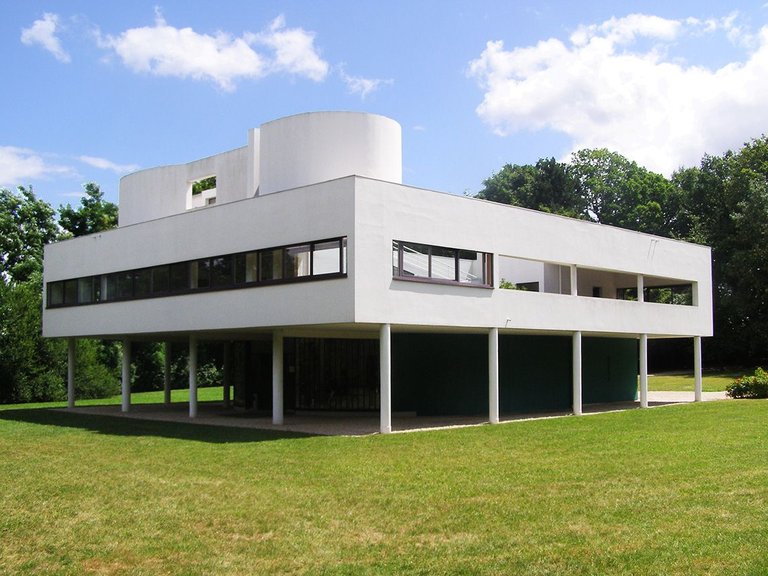
The Sum of All Architecture
In 2009, I participated in an architecture studio lead by starchitect Daniel Libeskind. The concept of the studio was daunting for a third-year architecture student like myself: to sum up all architecture in the creation of a book-object, and inspire my entire future career in the process. Each member of the studio was given a book created by Daniel Libeskind that was meant to be his own summation of architecture, and thus we were supposed to return the favor by each creating our own book. For a school publication I wrote the following synopsis of our studio and created a tongue-in-cheek poster to go with it:

The Sum of All Fears, an action film starring Ben Affleck and Morgan Freeman, hit theaters in 2002 and received mixed reviews. The Sum of All Architecture, a studio starring sixteen Cornellians, produced by Daniel Libeskind, and directed by Mark Morris and Eric Sutherland, will premiere in the Hartell Gallery in early December. The studio’s given name is Architecture in a Box: the Book-object, but I prefer the aforementioned title, as its epic tone gives us an Indiana Jones-like sense of adventure, which seems appropriate given our current quest. However it is important to stress what Mark Morris made a note of emphasizing when he said those grand and terrifying words, “the sum of all architecture, to you…to you” (twice for extra emphasis). The act of summing up all architecture is therefore, first and foremost, about defining our own inevitable boundaries that come with architectural adolescence. But our youth is to be revered, as it allows us to evaluate ourselves before our freedom is overrun by real life responsibility.
Villa Savoye by Le Corbusier
Almost immediately after being assigned the task of creating the "sum of all architecture," I knew my book-object would be an exploration of Villa Savoye by Le Corbusier. For the entire duration of my studies at Cornell's architecture program, my professors had been pushing the importance of this building, and I felt it was time to express my opinion about it. The building is considered to be a high point in Le Corbusier's career because it implements his five points of architecture: pilotis (supports, like columns, which elevate the building above the earth), roof garden, open floor plan, long horizontal windows, and free facade.
My commentaries about Villa Savoye were less an attack on his style of modern architecture, and more a reaction to his close-minded attitude. I do in fact greatly respect the innovations he brought to architecture (although I would never want to live in one of his homes myself). Most of all my commentaries were an expression of the fact that I had reached a place in my architectural education where I felt, finally, I could have an opinion. Whether I actually support the ideas that I spray-painted onto these photos is besides the point, the narrative you'll find below is simply a mechanism used to display my coming-of-age as a designer. I'll never forget Daniel Libeskind's response to my final installation: he called it "subversive," which I took as a huge compliment.

54 Murals (Free of Charge) on the Savoye House at Poissy
My book-object was not just a commentary on the Villa Savoye, it was an extensive narrative inspired by historical truth. Sometime in 1938, Le Corbusier entered a building called E.1027 designed by architect Eileen Gray and proceeded to paint what he called, "eight mural paintings (free of charge) in the Badovici and Helen Grey house at Cap Martin." He did this without permission, as a statement of power. After a long history of disrespecting women, this was yet another action that proved his bigotry and pretentiousness. Instead of expressing my reactions to this episode through my own voice, I created a fictional narrative in which Eileen Gray gets revenge on Le Corbusier by breaking into Villa Savoye and painting 54 murals (free of charge) onto its walls. The murals took the form of graffiti spray-painted onto a collection of photos of Villa Savoye, which I displayed at Hartell Gallery in Ithaca, New York in 2009.

18" x 18" each, spray paint on paper and cardboard, 2009

Below you'll find a selection of the "murals" along with the stencils used to create each one. The subject matter of each image was largely in response to direct quotations from Le Corbusier's manifesto called Toward a New Architecture. I took note of his pompous statements of authority and attempted to turn them back around on him on the walls of his own building.






Let me know what you think of this series in the comments below.

Calling out "pompous statements of authority" and turning them back around on their owners - using their own creations - is a brilliant idea. It's tougher translating this into writing, though. How would we tackle Louis Sullivan's book The Autobiography of an Idea, or Buckminster Fuller's I Seem to be a Verb. Wondering if we can give these acts of pomposity a name. How about "Starsplaining"?
Toward a New Architecture...so maybe it's not a big leap from here. For instance the floral wallpaper was a reaction to his line, "Your imitation stone stucco and your wall-papers are impertinence, and no good modern picture could ever be hung on your walls, for it would be lost in the welter of your furnishings." How smug is that!? I think "starsplaining" is a perfect word for it!Thanks @kenfinkel! Yes it would be fun to employ this same strategy in reaction to text-based pomposity. Actually a lot of these graffiti works were direct visual translations of quotations from Corb's book
"starsplaing" haha sooo good
I can't wait to visit this pristine Architecture one day... I appreciate your work more! Beautiful set of drawings in a grid - just like Corb's facade. I really like the medium that you used to make an intervention for Corb.
superb work erb!
Give you Steemit tres combo: upvote, comment and resteem!
Thanks @mintvilla! I'm also looking forward to seeing Villa Savoye in person someday. I'm sure I'd have an easier time appreciating his ideas in person.
amazing work. you really approached the matter very creatively and differently. I am also very aware what Le Corbusier has done for modern architecture and he definitely is an icon. I personally am not a fan of the "international style" that he promoted. Seeing that this house could be placed anywhere in the world today because the regional and traditional uniqueness of architecture had been erased.
Thanks @sistersartlab! I definitely agree about the international style. I've always felt it's more important to connect to the surrounding context. Corb's ideas of the "machine-for-living" always rubbed me the wrong way because it removed so much warmth from the home.
Congratulations @erb! You have completed some achievement on Steemit and have been rewarded with new badge(s) :
Click on any badge to view your own Board of Honor on SteemitBoard.
For more information about SteemitBoard, click here
If you no longer want to receive notifications, reply to this comment with the word
STOPI look good at pictures
So good! Extremely jealous you got to do a workshop with Daniel Libeskind. Love how you made narrative structure and social critique central to your sum of architecture. I had not heard of his history of misogyny, but was aware of his connection to fascism, anti-Semitism, and connection to the nazi party. All extremely troubling.
How does knowledge of repulsive actions of an architect of the past, actions that you would not accept from anyone in any field today, affect how you view their work and its influence today? (ex. Le Corpbusier and Phillip Johnson's connections to the Nazi Party, Paolo Soleri's recently history of sexual abuse of his daughter, etc.)